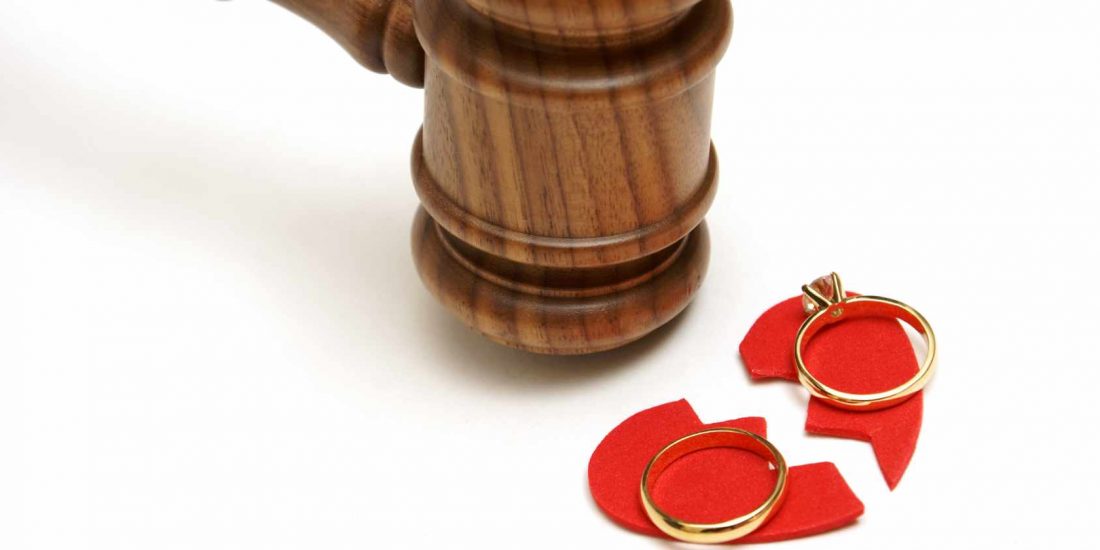
The Mental Health (Care and Treatment) Act: Potential for Abuse?
While the powers under the Mental Health (Care and Treatment) Act (Chapter 178A, Rev. Ed. 2012) (MHCTA) in relation to the involuntary admission or detention of mentally disordered persons under dangerous circumstances is necessary for the protection of the health and safety of such persons and others, there have been instances of abuse of the rules that raise concerns. This article seeks to discuss certain provisions under the MHCTA and consider the potential for abuse and also focuses on the somewhat sensitive issue of the psychiatric patient’s right to doctor-patient confidentiality. To what extent should the doctor-patient confidentiality be overridden in favour of the safety and protection of the patient and those around him?
Introduction
Greater attention has been given to mental health issues in recent times and perhaps more so as a result of the ongoing pandemic. From time to time, we are reminded of the importance of caring for the mental health of ourselves and those around us. One such reminder is the tragic incident of suicide by a 35-year-old woman along with her five-week-old daughter, as reported in the news on 28 May 2021. The woman had been suffering from postpartum depression.
Mental illnesses vary in severity, and whether a person suffering from mental illness is of danger to himself or others is at times difficult to detect or determine. Nevertheless, if one does suspect or perceive such danger arising from mental illness, what options are available?
There are ongoing movements and campaigns to raise public awareness and educate the public about mental health issues and how to deal with them. There is also legislation in force which provides for a mentally disordered person to be subjected to involuntary admission, detention, care and treatment in designated psychiatric institutions.
This article seeks to discuss the rules under the Mental Health (Care and Treatment) Act1Mental Health (Care and Treatment) Act (Chapter 178A, 2012 Rev. Ed.) (MHCTA or the Act) and how they may apply to assist the situation, but at the same time be potentially open to abuse.
The Mental Health (Care and Treatment) Act
The MHCTA was enacted in October 2008 and commenced in March 2010. The Act provides for the admission, detention, care and treatment of mentally disordered persons in designated psychiatric institutions (at the moment mainly Institute of Mental Health (IMH)) and was enacted to regulate the involuntary admission or detention of a person in a psychiatric institution under certain circumstances.2Singapore Parliamentary Debates, Official Report (15 Sep 2008), vol 85 at col 57 (Khaw Boon Wan, Minister for Health) Some key provisions of the Act include:
- Under section 7 of the Act, the police have the power (and in fact, a duty) to apprehend a person believed to be dangerous to himself or other persons and such danger is reasonably suspected to be attributable to a mental disorder, he/she may be apprehended by the police and taken for psychiatric examination.
- Under section 9 of the Act, if a medical practitioner believes a person to be mentally disordered or to require psychiatric treatment, the practitioner may send the person to a designated medical practitioner at IMH for treatment.
- Under section 10 of the Act, if a designated medical practitioner at IMH examines the person and is of the opinion that he should be treated as an inpatient at IMH, the practitioner may sign an order in accordance with Form 1 of the Schedule of the Act, pursuant to which, the person may be detained for up to 72 hours. This period may be extended for a further period of up to one month (pursuant to an order in accordance with Form 2 of the Schedule), and thereafter for a period no longer than six months (pursuant to an order in accordance with Form 3 of the Schedule).
- Under section 10(6) of the Act, a person may only be detained at IMH for treatment if (a) he is suffering from a mental disorder which warrants detention in a psychiatric institution for treatment; and (b) the detention is necessary in the interests of the health or safety of the person or for the protection of other persons.
- The term “mental disorder” is broadly defined in section 2 of the Act as “any mental illness or any other disorder or disability of the mind”. (It is noted that while there were concerns raised about the broad definition, it appears to be the Parliament’s intention that the term be framed broadly, so that it may cover a wide range of mental illnesses.3Singapore Parliamentary Debates, Official Report (15 Sep 2008), vol 85 at col. 93 (Khaw Boon Wan, Minister for Health) Further, in line with the purpose of the Act to only detain persons who require institutionalised treatment, whether the person requires such treatment should be assessed and determined by the examining professional on a case-by-case basis and not by legal definition.4Singapore Parliamentary Debates, Official Report (15 Sep 2008), vol 85 at col. 94 (Khaw Boon Wan, Minister for Health))
What this means for the public, or any family member of a mentally disordered person, is that if they perceive the person to be in a dangerous condition or situation, they may alert the police who may then act under section 7 of the Act. Another available option, if the person is a current psychiatric patient at a clinic, is that the family member may call on the person’s psychiatrist to recommend the person for psychiatric treatment at IMH (under section 9 of the Act) and/or for the police to bring the person to IMH for such treatment. The designated doctor at IMH will then assess and determine if the patient should be institutionalised for treatment.
It is appreciated that the ability to subject the mentally disordered person to involuntary treatment is clearly necessary for the protection of his safety as well as people around him. However, this necessity must be balanced against the protection of the mentally disordered person’s rights and interests.
Doctor-Patient Confidentiality
The issue of confidentiality was highlighted in Parliament during the Second Reading of the Mental health (Care and Treatment) Bill, where it was questioned whether Parliament should make a clear stand on the issue. In response, the Minister referred to the Singapore Medical Council’s Ethical Code and Ethical Guidelines and stated that doctor-patient confidentiality, while important, is not absolute, and disclosure may be justified in compelling situations.5Singapore Parliamentary Debates, Official Report (15 Sep 2008), vol 85 at col. 106 (Khaw Boon Wan, Minister for Health)
This issue was visited not so long ago in the case of Singapore Medical Council v Soo Shuenn Chiang [2020] 3 SLR 1129 (SMC v Soo) heard by the High Court of three judges. In this case, someone identifying himself as the husband of one of Dr Soo’s patients (the Patient) had called Dr Soo in the midst of a heavily scheduled clinic, informing him that the Patient was suicidal and needed to be brought to IMH for an urgent assessment of her suicide risk. Dr Soo wrote a memorandum (Memo) addressed to the police or ambulance staff, requesting assistance to ensure that the Patient gets a suicide risk assessment at IMH. Also included in the Memo was information such as the Patient’s last visit to Dr Soo and the fact that she defaulted on her follow up appointment. The Memo was left with Dr Soo’s clinic staff with instructions to hand it to the Patient’s husband. However, it later transpired that the person who made the call and thereafter collected the Memo was not the Patient’s husband, but her brother. At the time of the call, the Patient and her brother were embroiled in an application for a Personal Protection Order (PPO) taken out by the brother on behalf of the Patient’s son. In the course of the PPO proceedings, the brother submitted the Memo to the Family Court, at which stage the Patient discovered the existence of the Memo. The PPO was eventually ordered against the Patient (though it is not known whether the Memo was accepted in evidence or if any weight was placed on it by the Family Court).
As a consequence, Dr Soo was charged with failing to maintain the Patient’s medical confidentiality, amounting to a breach of the SMC’s Ethical Code and Ethical Guidelines, by (a) firstly, failing to verify the caller’s identity before issuing the Memo which contained confidential medical information, and (b) secondly, failing to take appropriate steps to ensure that the said confidential information was not accessible to unauthorised persons. Dr Soo did not contest the charges and a penalty was imposed by the Disciplinary Tribunal. On review, after considering the facts and evidence, the High Court found that the two charges were not made out and the Dr Soo’s conviction was set aside.
As a preliminary point, the High Court highlighted that medical confidentiality is not absolute. As to when confidential medical information may be disclosed without the patient’s consent, the High Court noted that “a doctor may disclose a patient’s confidential medical information without her consent when (a) he reasonably regards it as necessary to protect the patient from potentially serious self-harm; (b) disclosure is in the patient’s best interests; and (c) the patient’s consent cannot reasonably be obtained”.6SMC v Soo at (55) In this case, the High Court accepted that Dr Soo had good reason to assess that there was a real risk of suicide on the part of the Patient given her past psychiatric history; and that issuing the Memo, which would allow the police to act in accordance with section 7 of the MHCTA, was appropriate.7SMC v Soo at (56)
In the judgment, it weighed heavily that this was an urgent situation involving a serious risk of the Patient potentially harming herself. With this factual context, in relation to the first charge, the Court considered that:
- Obtaining the name and identification number of the caller was the usual clinic practice for a doctor to verify the caller’s identity but not the only way. In this case, the caller represented that he was the Patient’s husband, with whom Dr Soo previously had interactions with. Further, the caller was able to provide significant personal information about the Patient, and information about the Patient’s past medical and psychiatric condition. Additionally, the symptoms which the caller indicated the Patient was manifesting was similar to those presented during the Patient’s earlier admission in NUH. In the Court’s view, these facts were sufficient corroboration that the caller was who he said he was, and the call appeared legitimate. In any event, the clinic had not specifically documented the Patient’s husband’s information in its records and as such, even if Dr Soo had obtained the caller’s name and NRIC, he would not have been able to check them against the clinic’s records.8SMC v Soo at (61(b)), (62), (70), (73), (74)
- Given the circumstances of this case, particularly that the Patient was purportedly at imminent risk of injuring herself, it was not practical for Dr Soo to contact the Patient to verify the identity of the caller. Rather, it was reasonable for Dr Soo to act without delay on the information he reasonably believed to be true.9SMC v Soo at (61(c)-(d))
Accordingly, the Court agreed that Dr Soo had discharged his duty to verify the identity of the caller and had acted reasonably in issuing the Memo.
With regard to the second charge, as Dr Soo had given instructions to his clinic staff to hand the Memo to the Husband, the Court determined that the fact that the Memo thereafter landed in the hands of an unauthorised person or misused was not Dr Soo’s responsibility.10SMC v Soo at (80)-(82)
While the High Court decision brings much clarity and certainty to the issue of doctor-patient confidentiality particularly in the practice of psychiatry and should be celebrated, there appears to be a troubling concern in relation to the apparent ease with which such memos may be obtained and then used and abused by spouses or next-of-kins in family disputes.
Mental Health Issues in Family Disputes
Allegations of mental health issues are not uncommon in family disputes, including in applications of care and control of children, where one parent asserts that the other is suicidal, is emotionally unstable, or otherwise has some sort of mental disorder, making him or her an unsuitable parent to care for the child.
It is well established that the mere fact that one parent suffers from mental disorder is not sufficient to swing care and control in the other parent’s favour; but what is relevant is whether the mental disorder affects the parent’s ability to be a caregiver.11ACU v ACR (2011) 1 SLR 1235 at (47); VAG v VAH (2019) SGFC 94 at (84) There have been several reported decisions in which care and control was granted to a parent notwithstanding a history of mental disorder.12See for example the following cases: Soon Peck Wah v Woon Che Chye (1997) 3 SLR(R) 430; Cheok Wah Jin v Guo Xiao Ying (2003) SGDC 72; XQ v XR (2008) SGDC 163; ACU v ACR (2011) 1 SLR 1235; UIG v UIH (2017) SGFC 149; VAG v VAH (2019) SGFC 94
Unfortunately, some parties still resort to allegations of mental disorder even when they are untrue, exaggerated, or irrelevant, in the hope that they may gain an advantage in the proceedings. These allegations may or may not be supported by credible evidence. If they are not so supported, they can easily be dealt with and dismissed. To the extent that they are supported by evidence, the forms of evidence sometimes relied on by parties include communications between the parties and video or audio recordings. While a medical report would probably be more reliable than communications and recordings which may be orchestrated and contrived, it is not usually available to the alleging party without a court order as it would otherwise be subject to doctor-patient confidentiality. But what if the party was able to circumvent this and obtain a doctor’s memo pursuant to section 7 of the MHCTA, such as the Patient’s brother did in the case of SMC v Soo described above? He may then potentially be able to rely on the memo to further his case, be it to lend credibility to his allegation of mental disorder, or as a basis to seek disclosure of medical records or for a psychiatric assessment and report to be ordered.
In such cases, the other party is usually not aware of (and has no way of finding out about) the doctor’s memo until it is adduced in court as evidence, which may then lead to harm in the form of psychological and emotional distress, as was the case for the Patient in SMC v Soo.
As a further example of how such memos may be misused, in the case of UIG v UIH [2017] SGFC 149, the husband also obtained (without the wife’s knowledge) a memo from the wife’s psychiatrist addressed to the police and IMH and adduced it in divorce and custody proceedings. The contents of the memo even went so far as to recommend that the husband look after the daughter while the wife receives psychiatric assessment and treatment.13UIG v UIH (2017) SGFC 149 (“UIG v UIH”), at (29) (This said memo was later clarified by the psychiatrist in a subsequent memo, indicating that his first memo was not intended for divorce or custody proceedings. The subsequent memo also confirmed that the wife’s condition was in fact stable.14UIG v UIH at (38))
While there is no doubt that allegations of mental disorder are always carefully considered by the courts before a final determination is made, the concern is that such a memo so easily and improperly obtained may be misused in a way that would cause significant distress to the party on the receiving end due to potential stigmatisation, and also in simply having to defend these allegations, or suffer through unnecessarily prolonged litigation.
As the learned district judge in the case of VHA v VHB [2020] SGFC 31 (VHA v VHB) stated in postscript at [98]:
“If it is a party’s case that his spouse has a mental disorder or a pre-disposition towards one, then he should take extra care to avoid worsening or triggering the condition. Waging litigation upon litigation under the banner of “best interests of the child” might actually undercut his case, for how does it advance a child’s interests for a parent’s mental health to suffer through unending and tedious litigation? To this end, I urge all counsel to be sensitive and mindful of the nature and modalities of their litigation strategy where allegations of mental illnesses are concerned. One should not be trumpeting to all and sundry – the police, neighbours, and other third parties and the Court, that a spouse has a mental disorder. There is already much needless stigma surrounding mental illnesses. A spouse with mental health issues may then seek to conceal the true extent of her condition and delay seeking treatment, for fear of being labelled “mentally unstable” and prejudiced in the litigation.”
Conclusion
The powers relating to involuntary admission and treatment of the mentally disordered person under the MHCTA is certainly important to ensure the safety and health of the person and those around him. In giving effect to those provisions, the medical practitioners must be able to disclose confidential information about the patient in what are reasonably perceived to be urgent situations. In this regard, the case of SMC v Soo clarifies that medical practitioners will be held to a reasonable standard taking into account the context-specific circumstances.
That said, as noted in this article, there is also a potential for abuse of the MHCTA and misuse of any doctor’s memo obtained under it by the patient’s family members or spouse, such as in contested family court proceedings. In such circumstances, instead of assisting the mentally disordered person, it is arguable that such abuse of the MHCTA could worsen any mental illness suffered by the patient.
In efforts to prevent such abuse, insofar as medical practitioners are concerned, they should of course adhere to the medical confidentiality guidelines prescribed by the SMC15SMC Ethical Code and Ethical Guidelines (2016 Edition), Guideline C.7; SMC Handbook on Medical Ethics (2016 Edition), C7 and the principles explained in the case of SMC v Soo. Where the practitioner finds it appropriate to issue a memo, perhaps it might be prudent to clearly indicate on the memo what the purpose of the memo is, and that it is not to be used or disclosed for any purpose or reason other than what is stated in the memo. Where the practitioner has prior knowledge of any spousal dispute or divorce proceedings, it is suggested that they should be circumspect in disclosing confidential information to the patient’s spouse and should take additional steps to verify the matters communicated to him by the patient’s spouse.
Where lawyers are concerned, it is critical that we refrain from allowing our clients to rely on the MHCTA or any memo obtained thereunder to further their case in a family dispute, even if the client genuinely believes that his/her spouse is mentally disordered. Indeed, mental health issues are sensitive and tricky, and should as much as possible be left to the mental health professionals together with necessary social support. In this regard, it is worth mentioning the words of the learned district judge in VHA v VHB at [95], that “No one should arrogate to themselves the right to describe someone as being mentally disordered no matter how sincere the belief. That is the preserve of experts…, not counsel nor spouses. Mental illness is complex.”
Endnotes
| ↑1 | Mental Health (Care and Treatment) Act (Chapter 178A, 2012 Rev. Ed.) |
|---|---|
| ↑2 | Singapore Parliamentary Debates, Official Report (15 Sep 2008), vol 85 at col 57 (Khaw Boon Wan, Minister for Health) |
| ↑3 | Singapore Parliamentary Debates, Official Report (15 Sep 2008), vol 85 at col. 93 (Khaw Boon Wan, Minister for Health) |
| ↑4 | Singapore Parliamentary Debates, Official Report (15 Sep 2008), vol 85 at col. 94 (Khaw Boon Wan, Minister for Health) |
| ↑5 | Singapore Parliamentary Debates, Official Report (15 Sep 2008), vol 85 at col. 106 (Khaw Boon Wan, Minister for Health) |
| ↑6 | SMC v Soo at (55) |
| ↑7 | SMC v Soo at (56) |
| ↑8 | SMC v Soo at (61(b)), (62), (70), (73), (74) |
| ↑9 | SMC v Soo at (61(c)-(d)) |
| ↑10 | SMC v Soo at (80)-(82) |
| ↑11 | ACU v ACR (2011) 1 SLR 1235 at (47); VAG v VAH (2019) SGFC 94 at (84) |
| ↑12 | See for example the following cases: Soon Peck Wah v Woon Che Chye (1997) 3 SLR(R) 430; Cheok Wah Jin v Guo Xiao Ying (2003) SGDC 72; XQ v XR (2008) SGDC 163; ACU v ACR (2011) 1 SLR 1235; UIG v UIH (2017) SGFC 149; VAG v VAH (2019) SGFC 94 |
| ↑13 | UIG v UIH (2017) SGFC 149 (“UIG v UIH”), at (29) |
| ↑14 | UIG v UIH at (38) |
| ↑15 | SMC Ethical Code and Ethical Guidelines (2016 Edition), Guideline C.7; SMC Handbook on Medical Ethics (2016 Edition), C7 |






